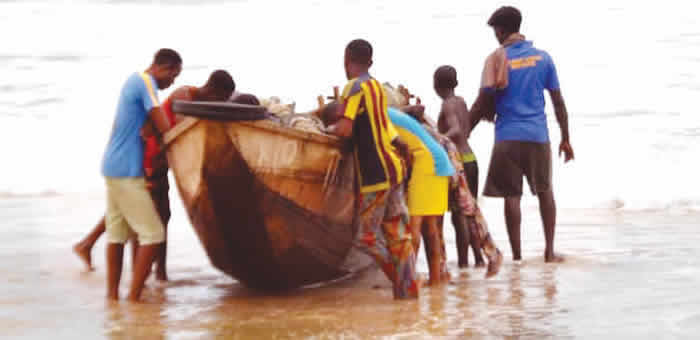On August 30, 2024, a group of fishermen in Rivers State intensified their protests by blocking access to the Nigerian Liquefied Natural Gas (NLNG) boats, which transport staff to their operational base on Bonny Island. This demonstration comes in the wake of the tragic death of their colleague, Precious Imabibo, which they attribute to negligence on the part of the company regarding a previous incident involving their fishing boats.
The protests began earlier in the week when fishermen barricaded the entrance to the NLNG corporate headquarters located along Amadi-Ama in Port Harcourt. They were expressing their grievances over the circumstances surrounding Imabibo’s death, which occurred after an NLNG-chartered speedboat allegedly collided with their fishing vessels and destroyed their nets back in January. The fishermen contend that the company has failed to acknowledge their loss and provide any form of compensation to Imabibo’s family.
During the initial demonstrations, the fishermen faced a strong police response, including the use of teargas, which forced them to abandon their barricade at the NLNG headquarters. However, undeterred by the police action, they regrouped and took to blocking the Amadi-Ama creek, utilizing five large wooden canoes to obstruct the waterway. This blockade effectively halted NLNG’s boat traffic between Port Harcourt and Bonny Island, disrupting the company’s operations
The group, representing various fishermen’s associations from Amadi-Ama, Koku-ama, Teria-ama, and Marine Base, is demanding compensation for the loss of their colleague and the damages to their fishing equipment. Albert Paul, one of the protesting fishermen, expressed frustration over the company’s lack of communication and support since Imabibo’s death. He stated, “Since the man died, the NLNG has not come to a roundtable to discuss the matter properly. Now, in the course of our protest at the NLNG gate, they decided to use the police and every other thing to pursue us.”
Another fisherman, identified only as Tamunokuro, emphasized that their protest was peaceful and that they only intended to block the creek until the company responded positively to their demands. “We are not causing any problem. We only block the river for them not to pass,” he explained, highlighting their commitment to peaceful demonstration.
The blockade has significant implications for NLNG operations, as it restricts the movement of staff and visitors who rely on the company’s boats to travel to Bonny Island. The disruption underscores the frustration felt by the fishermen, who believe that their livelihoods have been compromised due to the incident involving the NLNG’s speedboat.
In response to the protests, NLNG released a statement acknowledging the situation and expressing its commitment to resolving the issues at hand. Andy Odeh, the General Manager for External Relations and Sustainable Development at NLNG, stated, “Nigeria LNG Limited is aware of a recurrence of a protest at its Corporate Head Office in Port Harcourt by a group claiming to represent the family in an incident allegedly involving an NLNG chartered passenger boat along the Amadi Creek in January 2024.” He noted that the company is engaging with relevant stakeholders to seek an amicable resolution while stressing the importance of safety and care for both the company’s personnel and the host communities.
The protests by the Rivers fishermen reflect broader issues of accountability and communication between local communities and large corporations operating in their vicinity. As the situation develops, it remains crucial for NLNG to address the grievances of the fishermen and provide a resolution that honors the memory of Precious Imabibo while also restoring goodwill with the local fishing communities. The outcome of these protests could set a precedent for how such incidents are handled in the future, impacting not only the fishermen but also the operational dynamics of businesses in the region.
As the fishermen continue their demonstration, they call on state and federal authorities to intervene and ensure their demands are met, highlighting the need for transparency and justice in corporate-community relations.









